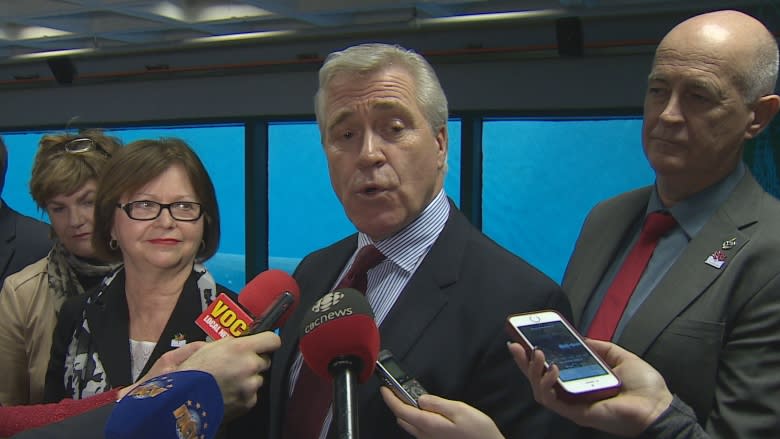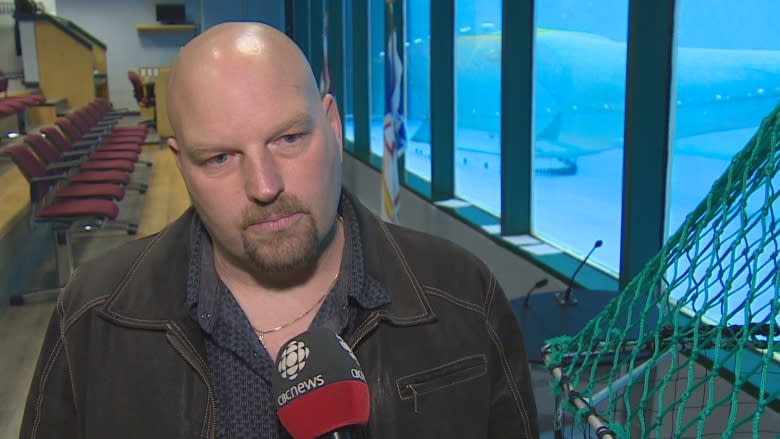$100M for N.L. in new fisheries innovation fund; CETA fund dead
The compensation fund that was once promised as part of a Canada-European trade agreement (CETA) is dead, according to federal cabinet minister Judy Foote — but she says the province is coming out ahead with even greater investments from the federal government.
Spending on an ocean protection plan, along with a new fisheries fund announced on Friday means that Newfoundland and Labrador will take more money than they would have under the CETA compensation initiative, Foote told reporters in St. John's.
"There is no $280-million CETA fund," Foote said. "This is $100 million on top of the other money that has been invested to do what we need to do in Newfoundland and Labrador to have a sustainable fishery."
Maritimes get money too
The $100 million is part of a $325-million Atlantic Fisheries Fund announced at news conferences in Halifax and St. John's on Friday, with the federal Liberals saying the fund will "help strengthen the Atlantic economy and increase job opportunities for Atlantic Canadians."
Foote said both levels of government will need to meet to finalize exactly how the money will be rolled out.
She said the fund will help the industry be internationally competitive, spur innovation and provide access to and development of new markets.
"I think the premier can tell you that, for $100 million, we can make substantial headway in terms of really making sure we have a sustainable fishery," she said.
Premier Dwight Ball suggested that the money could help prepare the province's fish harvesters and processors for the return of a larger commercial groundfishery.
"Look no further than the new gear that's going to be required," he said.
"The market demands good quality groundfish. They want to do business in Newfoundland and Labrador. This $100-million … goes a long way in positioning our province to meet the market demands."
No compensation for lost processing
Premier Dwight Ball confirmed on Friday that the province's minimum processing requirements would be dropped for fish exported to the European Union, as the province complies with the trade agreement.
When asked if there would be compensation to the province in exchange for lost processing, Foote replied that the federal government was "looking at much more comprehensive investments."
Both Ball and Foote said the CETA fund promised in 2013 was insufficient.
"They had to be able to show losses in order to access this money. For us, we didn't have time for that," Foote said. "If you look at what's happening with our fishery, we really needed to move along."
The politicians said the province will get more money in total when all is said and done.
"It's not called the CETA fund," said Foote. "What we've done is delivered much more than what would have been under the CETA fund."
Opposition responds
Newfoundland's Progressive Conservative Opposition was quick to respond, noting that $100 million was a far cry from the $280 million commitment for Newfoundland and Labrador, which was promised by the then-Conservative government.
"Premier Ball is telling us to settle for $100 million, a fraction of what was promised and a fraction of what our fishing industry needs," said Kevin Parsons, the party's fisheries critic, said in a statement.
Brad Watkins, the owner and operator of a 65-foot vessel off the northeast coast, says the funding shows the federal government is paying attention.
"It needs to be used for growth...and that's the key to this," he said.
"We have a transition period from shellfish to groundfish, and we need ways to grow this, build our markets, to compete with the rest of the world."
He added that the current transition period in the fishery is "stressful."
Watkins said the funding goes so far, but DFO and the federal government need to listen to fishermen on policies and regulations as well.



